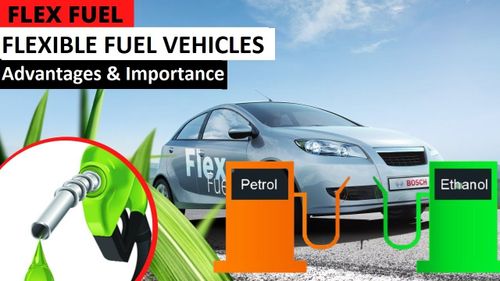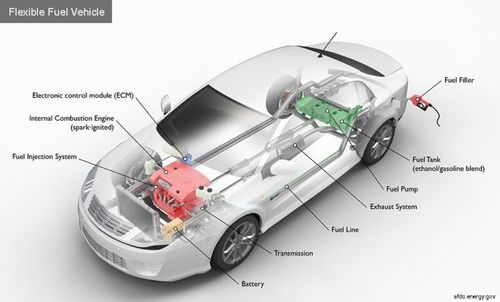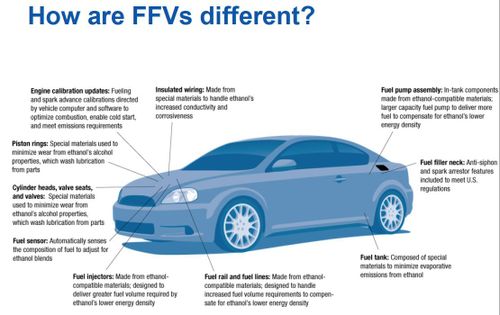Flexible Fuel Vehicles (FFVs): Advantages and Importance for a Sustainable Future
By Rohit Kumar

3829 Views
Flexible Fuel Vehicles (FFVs) support gasoline and ethanol fuel, help reduce greenhouse gas emissions, and contribute to a more sustainable future.
Flexible Fuel Vehicles (FFVs) are automobiles that can run on gasoline, ethanol, or any blend of both. They are becoming increasingly popular due to their ability to run on renewable and domestically produced fuels.

Flexible Fuel Vehicles Design
FFVs are designed to be able to handle different ratios of ethanol and gasoline, ranging from pure gasoline to pure ethanol. This is achieved through the use of specially designed fuel systems, such as modified fuel injectors, fuel tanks, and sensors. The use of ethanol in FFVs has many advantages, including reduced dependence on foreign oil, lower greenhouse gas emissions, and support for local agriculture.

Development and Technology
The development of FFVs has been driven by government policies promoting renewable fuels, such as the Renewable Fuel Standard (RFS) in the United States. This policy requires a certain amount of renewable fuels to be blended into the gasoline supply each year. In addition, some countries, such as Brazil and Sweden, have implemented policies to encourage the use of ethanol as a fuel.

The technology for FFVs has been available for several decades, but it has only recently gained widespread adoption. In 2020, there were over 30 million FFVs on the road worldwide, with the majority of them in Brazil and the United States.
Key Benefits
One of the key benefits of FFVs is their flexibility. Drivers of FFVs can use any blend of gasoline and ethanol, depending on availability and price. This is especially important in areas where ethanol is not widely available or is more expensive than gasoline.
In addition, FFVs have been shown to have similar performance to gasoline-powered vehicles, with little or no difference in acceleration, top speed, or fuel efficiency. This means that drivers of FFVs do not have to sacrifice performance for the ability to use renewable fuels.
Finally, FFVs can play an important role in reducing greenhouse gas emissions. Ethanol is a renewable fuel that emits significantly less carbon dioxide than gasoline when burned. By using ethanol in FFVs, drivers can reduce their carbon footprint and help mitigate the impacts of climate change.
In conclusion, Flexible Fuel Vehicles are an important technology that can help reduce dependence on foreign oil, support local agriculture, and reduce greenhouse gas emissions. With the continued support of government policies promoting renewable fuels, FFVs are likely to become even more popular in the coming years.